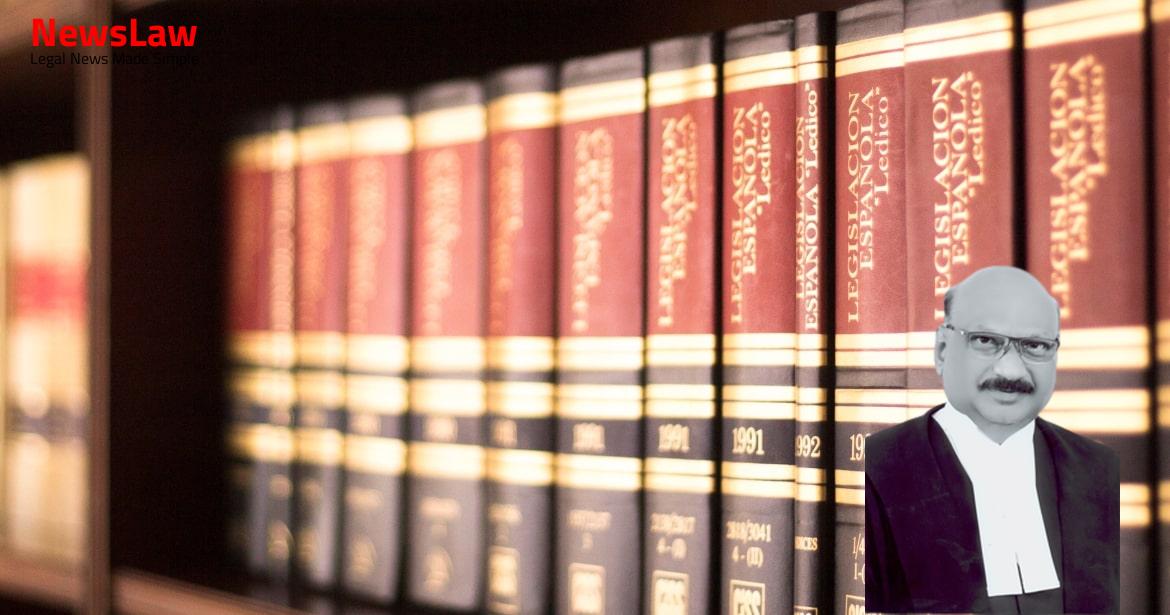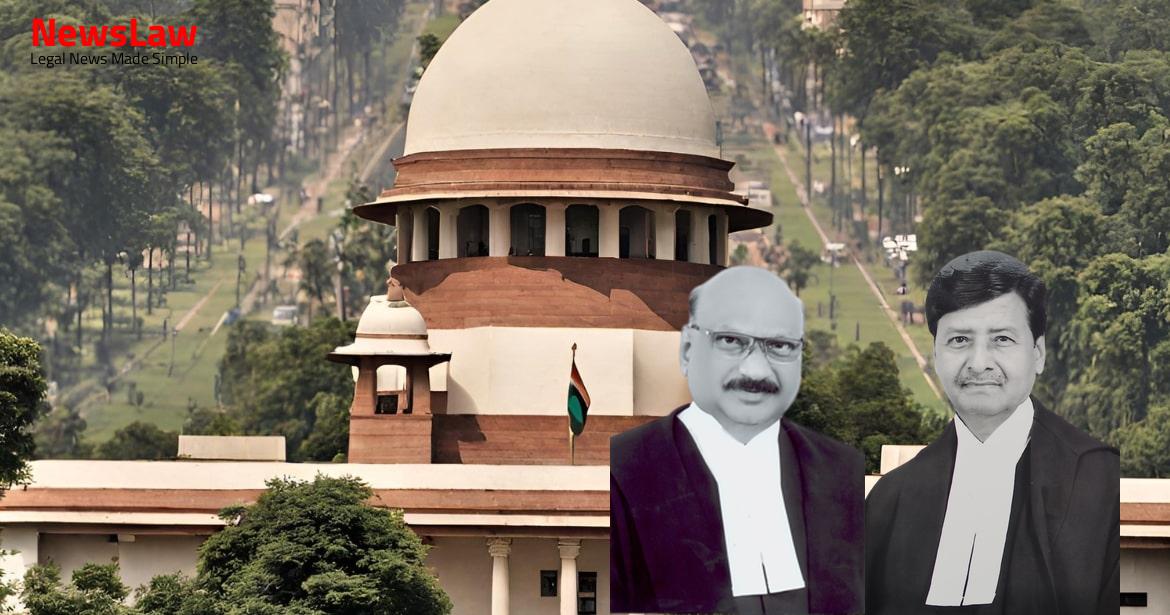The Supreme Court of India recently delivered a significant judgment in the case of Madegowda vs Manchegowda, addressing the validity of sale deeds and possession rights over a disputed property in Hittanahalli Koppalu, Karnataka. The case involved intricate legal aspects regarding registration requirements and acquisition of title. Let’s dive deeper into the details of this complex legal battle.
Facts
- The plaintiff’s claim was based on an agreement for sale executed in April 1981 and a subsequent deed of sale in May 1981.
- The suit was contested by the legal representatives of Madegowda and Manchegowda.
- The first set of defendants disputed the genuineness of the sale deed of May 1981.
- The appeal filed by Manchegowda’s legal representatives found the sale deed of April 1981 to be valid.
- The main issue in the appeal was the necessity of the purchaser’s presence during registration.
- The suit was ultimately dismissed in March 1989 at the instance of Madegowda.
- The property in question was in Hittanahalli Koppalu in Karnataka, comprising approximately 4500 square ft.
- Madegowda’s possession complaint led to the suit’s dismissal without cost.
- The second set of defendants failed before the First Appellate Court.
- The Trial Court and First Appellate Court rejected the second set’s claim over the property based on a sale deed.
- The Trial Court found the sale deed through which Manchegowda claimed ownership to be not genuine.
- The plaintiff’s possession claim was sustained by the Trial Court primarily due to the sale deed’s validity.
- The cancellation of allotment in favor of Manchegowda was not accepted by the Trial Court.
- The litigation history over the property involved Madegowda and Manchegowda as predecessors.
- The presence of the purchaser is not required when a document is presented for registration before the Sub-Registrar.
- The Trial Court erred in holding the sale deed invalid just because the defendant was not present during registration.
- The Trial Court’s conclusion is contrary to the provisions of the Registration Act and Rules and cannot be sustained in law.
- The sale deed in favor of the defendant is valid in law, preventing the vendor from retaining any interest in the property and subsequently selling it to the plaintiff.
Also Read: VVF India Ltd. vs. Employee Union: Wage Revisions & Benefits Case
Arguments
- The substantial question of law raised is answered in the negative.
- On the question of possession of the suit property, the High Court held that the evidence of D.W.4 claiming the plaintiff was thrown out by the police and panchayat members, needs to be assessed in light of other evidence on record.
Analysis
- The trial court and the first appellate court found the plaintiff to be in possession of the suit property.
- There was no rejection of the contention that Madegowda did not execute the deed of sale to Manchegowda.
- The case was decided in favor of the plaintiff due to the absence of the buyer at the time of the registration of the sale deed.
- Presence of the buyer at the Registration Office during registration was not a legal requirement at the time.
- The plaintiff denied all suggestions and reiterated his possession of the property from the time of the agreement of sale.
- Section 32 of the Registration Act does not require the presence of both parties during the registration of a deed of sale.
- The dates mentioned in the judgment were subsequent to the claimed date of sale execution.
- The plaintiff is the appellant in this case.
- The execution of the deed in favor of the plaintiff by Madegowda was not disputed.
- The plaintiff has not disputed that Madegowda executed the first sale deed
- No doubt expressed over Madegowda’s presence before the Registering Authority
- No case made out that the deed carried any collateral obligation on the part of the purchaser, Manchegowda
- No case of acquiring title under part performance as per Section 53(A) of Transfer of Property Act
- The High Court judgment is upheld.
- No interference is warranted in this case.
- The present appeal is dismissed.
Also Read: Legal Analysis of M/S Rajco Steel Enterprises v. Kavita Saraff: The Dynamics of Dishonoured Cheques
Case Title: H.P.PUTTASWAMY Vs. THIMMAMMA (2020 INSC 86)
Case Number: C.A. No.-003975-003975 / 2010



